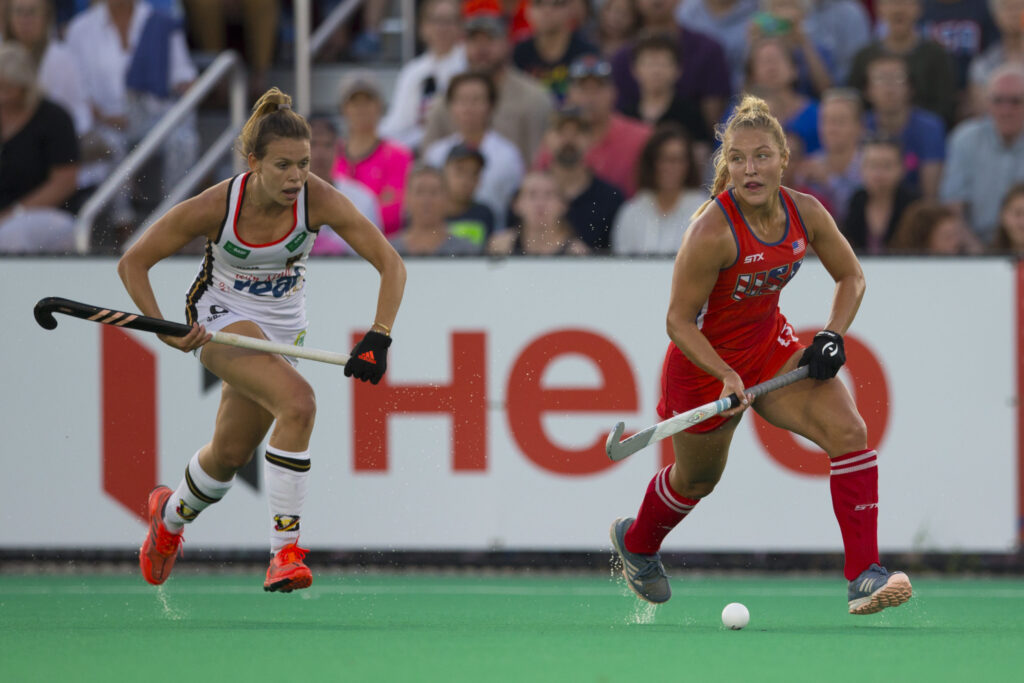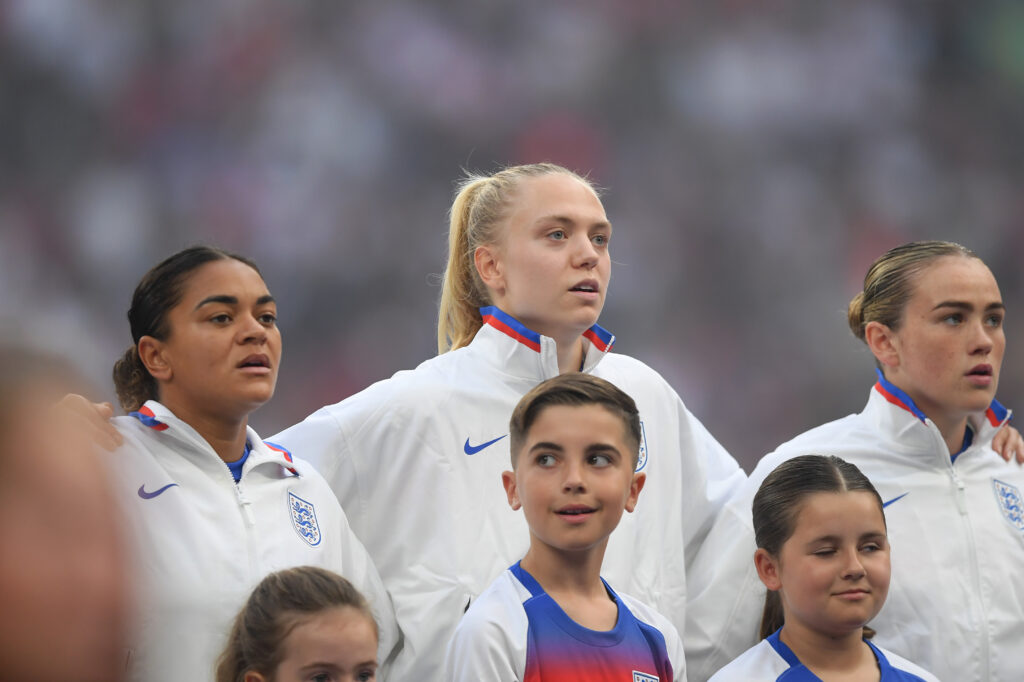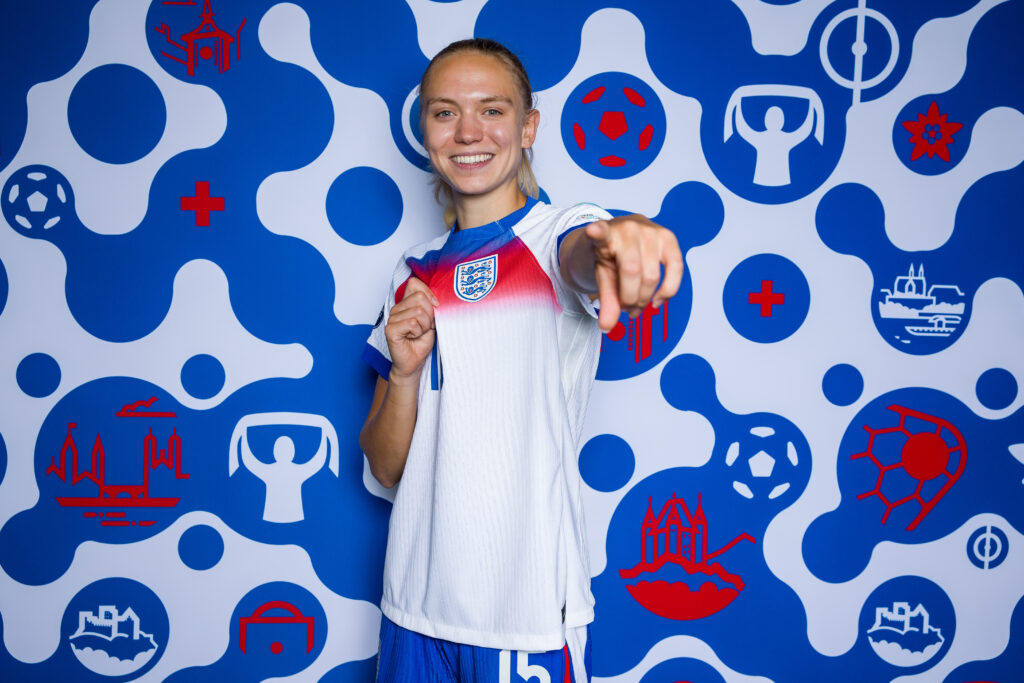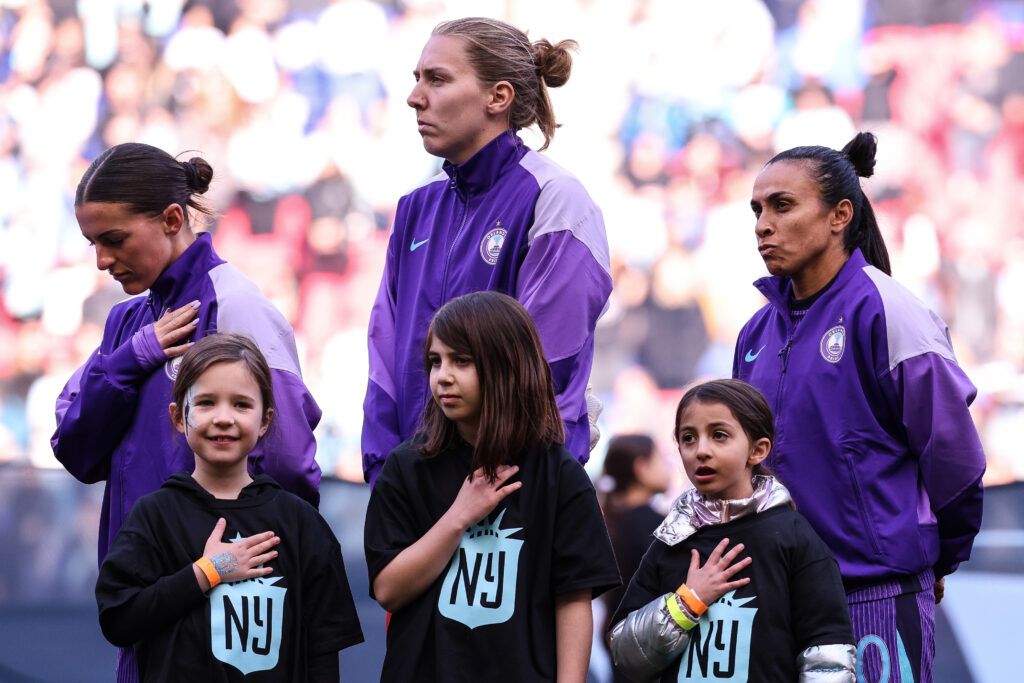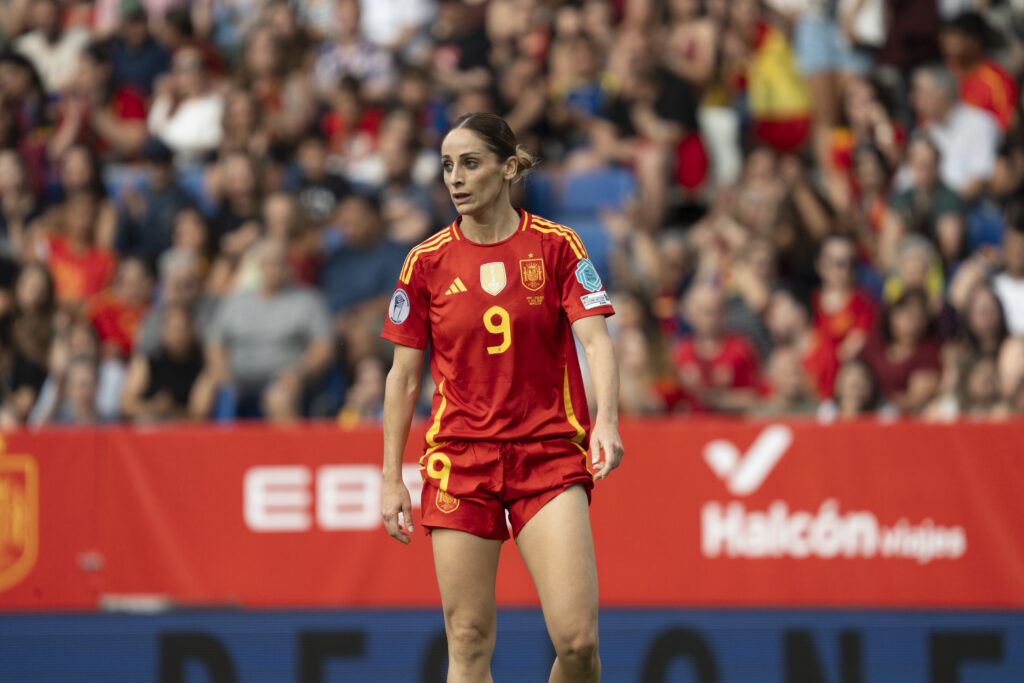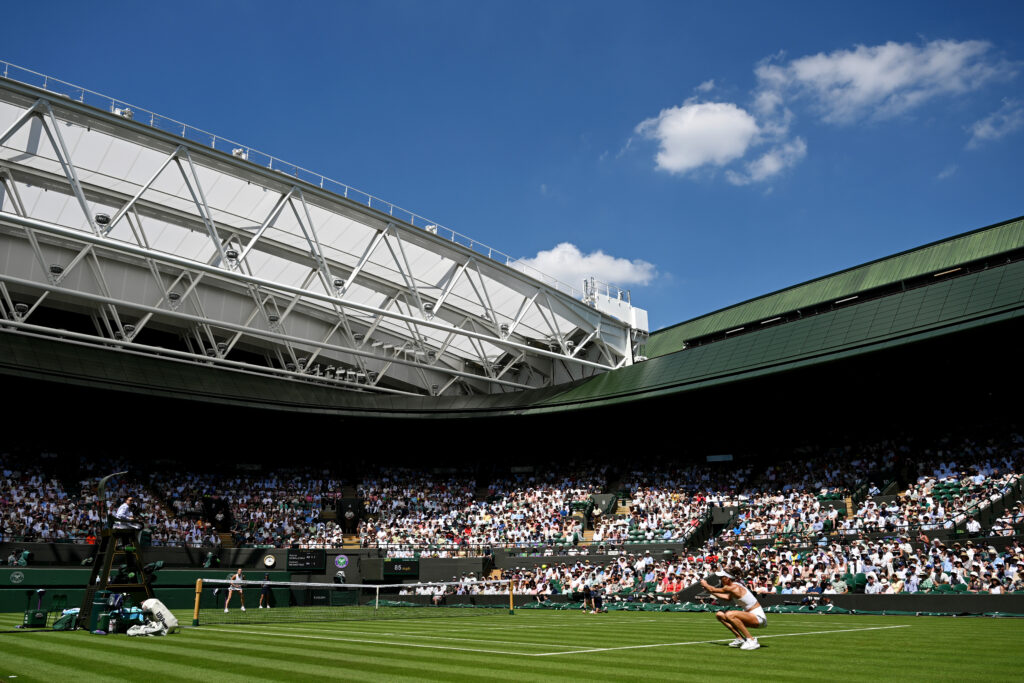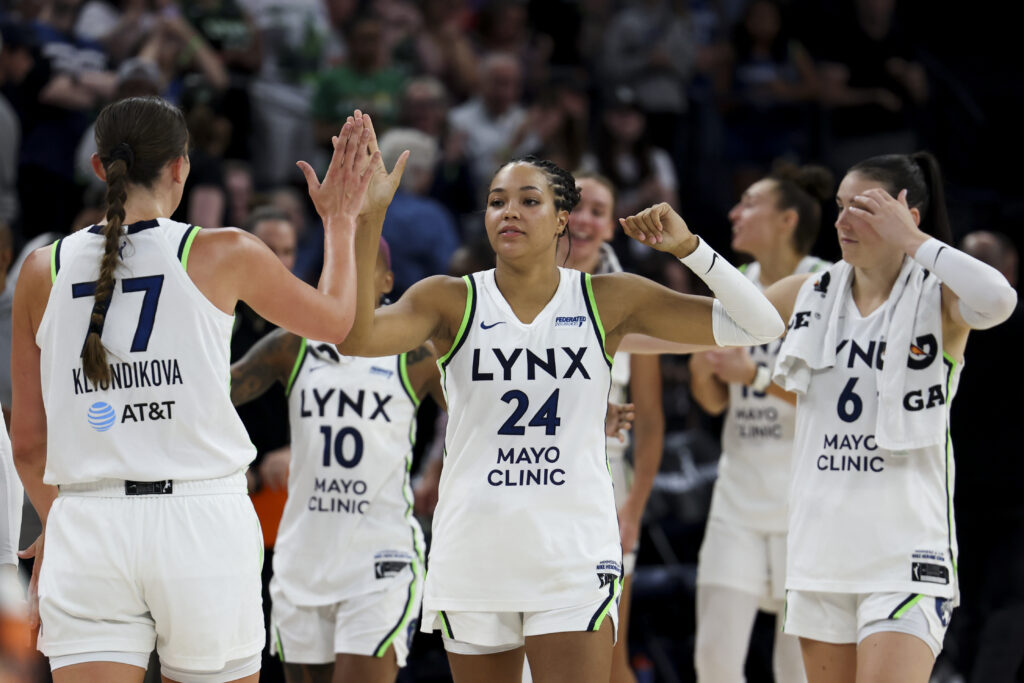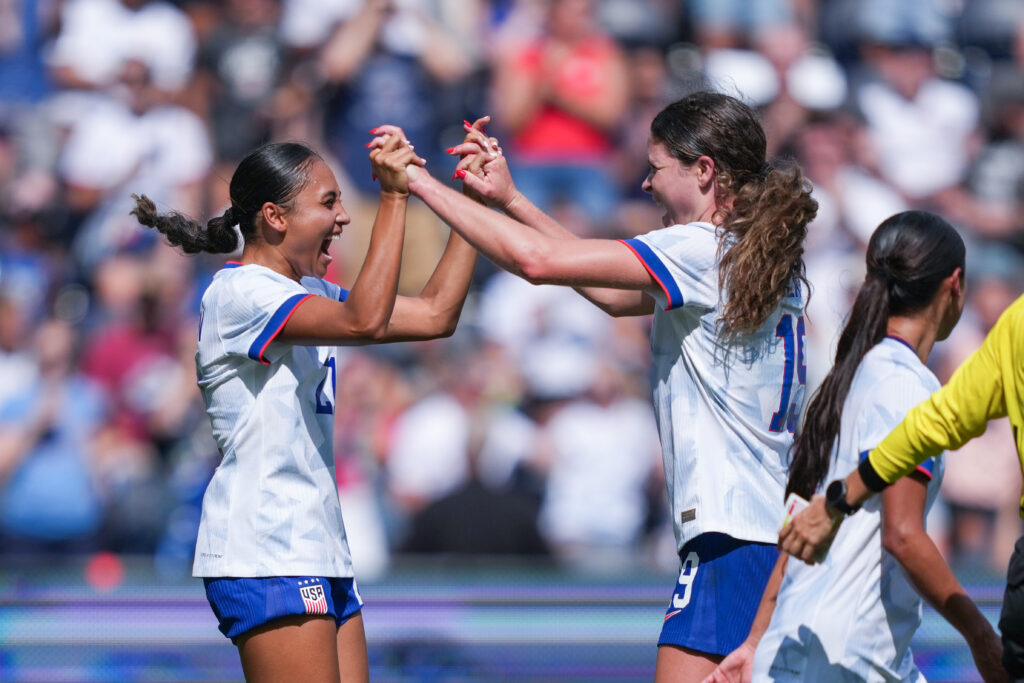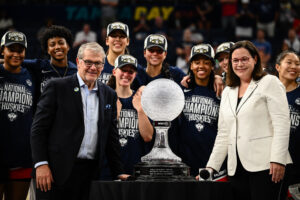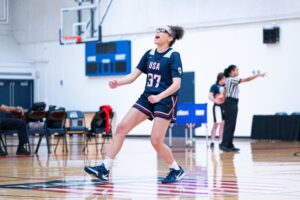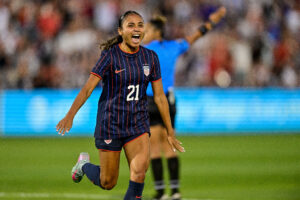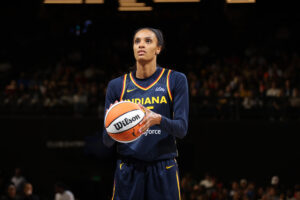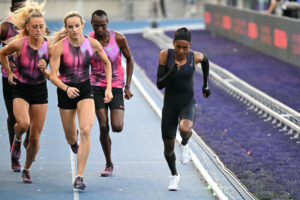Ashley Hoffman plays as a midfielder for Team USA Field Hockey. A graduate of North Carolina, she helped lead the team to a national championship and won the Honda Sports Award as the nation’s best player in 2018. Below, she talks with Just Women’s Sports about Team USA’s failure to qualify for the upcoming Olympics, what comes next for the program, and the personal goals that keep her motivated.
Can you first walk us through how teams qualify for the Olympics?
Two years ago, the FIH (the International Hockey Federation) started an international pro league in order to get field hockey on the map and make it more accessible to both viewers and players. Nine of the world’s best teams compete in a round-robin style tournament with games from January to June.
During the last Olympic cycle, a team could qualify for the games just by winning certain summer tournaments, world leagues and continental games. But they changed the process completely, so that this time around it was very dependent on your pro league results, because those determined your qualifying draw. So results from the 2019 pro league determined both your world ranking and who you had to play in your Olympic qualifying matches. Higher ranked teams played lower rank teams, which is obviously a huge advantage. We ended up coming in last place, which really hurt our rankings, and when they announced the qualifying matches, we drew India.
What happened in your Olympic qualifying series against India?
Well first of all, India hosted the series since they were the higher ranked team. And we had to play two games, back-to-back. Whichever team had the highest aggregate score after the two games won the series. India ended up scoring more goals across the two games and clinched the aggregate 6-5 victory. Despite coming back to win the second game 4-1, we fell short in goals scored, lost the series and did not qualify for the Olympics. It was heartbreaking.
Were you confident heading into the series?
Going into both games, we had a clear plan in place based on how we knew India played. We’d played them before, and felt like we knew them in and out. When we actually got to India, I think their home crowd was a huge distraction. There were so many people there, all cheering for India of course. In the first game, we fell apart and went down five goals, so coming into the second game, we knew we had a huge mountain to climb. We had to make up a lot of ground in order to win the series and clinch our Olympic spot. I was proud of how we fought in that second game because we made a comeback, but unfortunately still fell short by two goals.
Captain Ashley Hoffman scores @USAFieldHockey's first goal of the Pro league season ????
— Bleacher Report Live (@brlive) February 7, 2020
➡️ https://t.co/SONSpAedQO pic.twitter.com/f30S2QDqP4
What was the makeup of Team USA ahead of the series? Were there a lot of veteran players on the roster?
No, actually. We only had two Olympians from the 2016 games on our roster. And then if you looked at the average cap number for India compared to our team, there was a significant difference. India was very experienced. However, I think the ability to hold her own against India and almost come back just shows the potential we have for the next Olympics and even the World Cup, which is in two years.
Why was the roster so young? Did a lot of players retire?
Players usually retire around the age of 30 or even before, but I know we had some girls that probably could have kept playing that didn’t. We’re one of the only full time programs in the world, so our players are limited in the jobs they can have outside of the team, because our training is like a nine to five job, even though it doesn’t really pay like one. A lot of girls coach for extra money because our income is very tight. We’re definitely not living a glamorous lifestyle by any means. Then again, it’s all of our dreams, so we’re willing to sacrifice. But by the time players are 30, there’s a lot of factors to consider, and it’s common for players to then want to move on with their lives. Having kids is obviously a huge factor, as it’s hard to come back from that.
Where does the team go from here after not qualifying for the Olympics? Are you just focused on the World Cup in a few years?
We’re focused on the Pan American games and the World Cup, both of which will happen in about two years. After we did not qualify for the Olympics, which was the first time since 2004 for Team USA, our head coach was removed. We changed training facilities, moving out of Lancaster, Pennsylvania and temporarily to Chula Vista, California. There have been a lot of different organizational changes, and as a team, right now I think we’re all focused on finding a place to train and get better.
What does your off season normally look like (pre-coronavirus)?
It’s actually kind of crazy with the pro league, which now goes from January to June. I’m typically only home for about five weeks of those six months. We’re training so often that my teammates and I always joke that our house is just a storage unit because we’re never actually home. Thankfully, I grew up about 40 minutes from Lancaster, which is where we used to train full time, so I didn’t have that extra rent burden that many of my teammates had.
What do you think Team USA will look like once training resumes?
It’s stressful, but we’re in a rebuilding phase again. We have a new coach and we will hopefully have a home training facility soon, so right now we are just trying to define our culture and goals moving forward. How we come out of losing the qualifier and the chaos of this pandemic will really determine the future of our program. We want to build a program that makes players want to stay involved until they’re in their mid to late thirties and that allows players to have a baby and still come back to play or have another job and still play. I think all of the hardships that we went through this past year, and all the hardship that the world is going through right now, gives us an opportunity to change the narrative and alter our future course.
What is your individual goal as a field hockey player on Team USA moving forward?
My goal is to become one of the best players in the world. I want to aim high because it keeps me motivated. I find that when I ask the younger girls who I coach what their goals are, it is usually something like making the national team or going to the Olympics. But for me, I want to think bigger than that. I want to win an Olympic gold. I want to be the best in the world, not just the best in the country. That’s what motivates me to put in the work.
I’m not sure I thought about my goals in the same way in college as I do now. I’m the type of player who plays best when they’re making the players around them better — I’m definitely more of a distributor than I am a fancy goal scorer. It was in college that I really solidified that identity and found out what my strengths were. And then when I made the national team, I started dreaming bigger.
